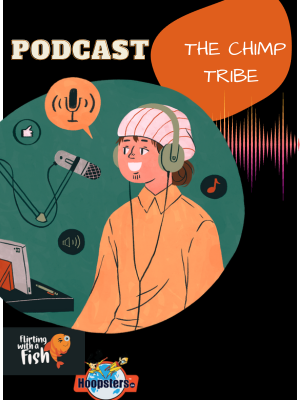
|
HOW DO I KNOW THAT MY PARTNER IS DEPRESSEDDepression in your partner can manifest in a number of ways. You might notice them being sad and irritable more often, they may cry more easily, may complain of fatigue or tiredness more often. Their sleep cycle may also alter in a way that they sleep less or wake up early in the morning and appear to be very sad at the time. Their appetite may also decrease and they may lose weight without intending to do so. They might withdraw socially and not like going out as often with friends or with you. They may also not like doing things they found pleasurable earlier. Their sex drive might reduce considerably If you notice these signs over a period of time, you might want to ask them if they would like to talk about what is bothering them. This said, a week of feeling sad does not mean they have depression. To recognise that what they are going through is depression, there needs to be a cluster of these symptoms for at least two weeks. Cognitively, you might feel guilty for how your partner is feeling. You might have questions like "Did I the cause of depression in any way?", "Did something I do make their depression worse?". You might feel frustrated by thinking that no matter how much you try, it never seems enough. It's important to acknowledge that you are not the cause of your partner's depression. Holding yourself responsible for your partner feeling depressed is likely to result in an endless spiral of guilt for you, this could potentially be damaging for the relationship. |

|
DEALING WITH A PARTNER WHO IS UNWILLING TO SEEK HELPWhat do I do if my partner is not willing to seek help? After asking a partner to share their experience they might feel relieved and talk to you or get defensive. Both reactions are normal and acceptable given the situation. A person with depression may be able to function without hindrance for the most part and face lows with a frequency determined by the severity of their illness. When they are having a difficult day or episode, it's important to remind them that how they're feeling is not their fault. You can talk about the option of seeking help from a mental health professional. If they are averse to this and find it overwhelming, you can mention the option of reading a self-help book, visiting an informational website to learn more about good mental health. The decision to seek help from a mental health professional is a very, very personal one. Your partner is an individual who must have complete control over whether they wish to go to a therapist and/or psychiatrist. It doesn't matter how well-intentioned you are and how much you want them to feel better, this is not something that you get to decide. |

|
WHEN YOUR CHILDREN MOVE AWAY: THE EMPTY NESTsource : WWW.WHITESWANFOUNDATION.ORG by Aaheli DasguptaUnderstanding how empty nest impacts your mental health and relationships. What happens when our grown children decide to move out for various reasons? What does it mean? How does one cope with the feeling of loneliness that may accompany it? We spoke to a few experts to understand this complex phenomenon. Empty nest refers to the experience of grief and loneliness that follows after an adult child leaves home. The adult child moving away may mean different things to different people, some may realize a previously lost cause/talent(s) whilst some others may feel a terrible sense of loss. The experience is not only limited to the sadness that accompanies the child's leaving but also the sense of loss of identity as caregiver and guardian. The empty nest heralds a permanent change, in many ways it is the next major transition after adulthood. Often, the person is vulnerable and may experience symptoms that may look a lot like depression and/or anxiety. However, persistently feeling hopeless and worthless maybe telling of a more serious issue which may need to be addressed in therapy. Q : How does experiencing emp ty nest affect your relationship with your child? A : When you experience an empty nest there is a lot of anxiety and angst that may come to the forefront. Children who begin to live independently may not be able to call as much as they’d like to and often the parents may read it as a sign of strain in the relationship. In an attempt to repair the relationship the parents may try to push or even criticise their children for not being considerate enough. This may result in further straining of the relationship. Sometimes, however, the parent and the child are able to reassess their relationship to share a friendship-like bond that enables them to navigate their respective interactions in the future. Q : What can children do to ease the difficulties during this period? A : As with any stressor, it is important to remain patient and empathetic. Children may find that soon after their moving away, their parents (either or both of them) have become more anxious and restless to know about their whereabouts and wellbeing. Parents may even begin to get angry for seemingly small issues (like not calling them more often). They may constantly nag their children to come back despite the latter trying their best to stay in touch with them. Sometimes, parents may cut off from conversations altogether since they may feel betrayed. In such instances, children may find themselves incredibly annoyed and helpless. A good thing for the children would be to have an open conversation about the parent's behavior is impacting them. They should let the parents know that they are willing to devote time to the latter. Sometimes, just this assurance, and listening to their woes, help rectify the strain that may have appeared in the relationship. Children could also make it a point to spend more quality time with the parents whenever they visit them. It will help navigate the change that both of them are experiencing. Q : How does empty nest syndrome affect the dynamics between the couple? A : Once the child leaves home, couples end up rediscovering each other in the context of the relationship they share. One may find their spouses living up to the idea of being a great source of support and warmth, as they, too, undergo similar experiences. However, some couples may find it hard to renegotiate their spousal roles as they shift away from being parents. This may potentially lead to certain disturbances in the relationship that may amplify the emotions felt during this period. Q : How does one cope with empty nest? A : The first step would be to recognize the emotions associated with empty nest and assess their intensity. Talking to friends who may or may not have undergone similar experiences helps. Often, investing time in activities of interest promotes mental wellbeing, it also helps connect with interesting people. Reach out to the spouse and take up activities that are aimed at promoting intimacy. For example, you could travel together, find new experiences you both enjoy or start an exercise routine together. In the case of constant preoccupation with thoughts that are related to the loneliness and hopelessness that accompanies it, you may benefit from visiting a mental health professional. Q : What can you expect from the mental health professionals? A : Despite this not being a diagnosable condition the expert may provide a safe space to voice the feelings that accompany this transition. By speaking to a professional you may gain insight into your thought patterns and develop skills that may help you renegotiate the changes in relationships that this period brings. |



























